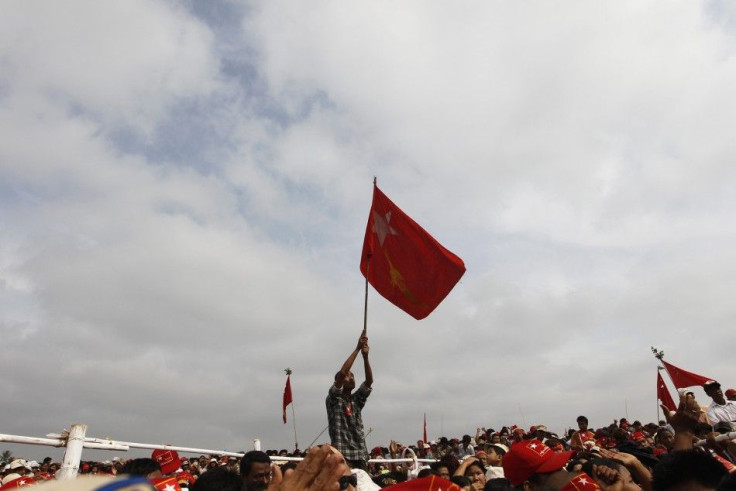EU To Suspend Sanctions On Myanmar

The European Union is suspending its sanctions against Myanmar.
EU ministers will formally approve the decision in Luxembourg next Monday, Reuters reported citing anonymous diplomatic sources. The suspension does not mean that the sanctions are lifted; is currently conditional over the next year; will not cover an arms embargo; and will undergo review after six months.
Nevertheless, it reveals a warming of relations between Western nations and Myanmar's military junta following the latter's allowing of parliamentary by-elections on April 1.
An opposition party, the National League for Democracy, won an overwhelming number of the 45 seats offered, resulting in a major blow to the government's Union Solidarity and Development Party, which still holds a vast majority of seats in both houses of Myanmar's parliament.
Aung San Suu Kyi, the long-time political activist and head of the NLD, is now able to sit in Myanmar's parliament. She had previously been held under house arrest for a cumulative 15 years by the Myanmar government until her most recent release in November 2010.
The elections, largely praised by international observers, were a partial opening of the Myanmar political system, and led to hopes of further progress in easing Myanmar's political oppression and isolation from the West.
Efforts to lift Western sanctions on Myanmar have been gaining momentum around the world.
The EU suspension follows the U.S. Treasury's decision, announced on Tuesday, to partially ease sanctions, in order to allow NGOs to operate more easily in the country.
U.S. Secretary of State Hillary Clinton originally said on April 4 that Washington applauded the elections, but remained firm on a targeted easing of sanctions. Further improvements ultimately rely on persistent and lasting reforms made by the Myanmar government.
We will continue to monitor developments closely and meet, as I said when I was there, action with action, said Clinton.
On Thursday, the Asahi Shimbun newspaper in Japan reported that the government was preparing to forgive about $3.7 billion worth of Myanmar's debt to Japan, and would discuss further economic assitance to the country.
On Monday, the Australian government announced a partial lifting of sanctions targeted against Myanmar's top leaders.
Last Friday, British prime minister David Cameron had also called on European nations to ease trade restrictions against Myanmar.
The nation has no trade restrictions with India, Thailand, or China, geographic neighbors which are keen to invest in the country's vast natural resources, which include timber, minerals, and natural gas.
The Myanmar economy grew by approximately 9 percent in 2011, but the country remains the poorest in Southeast Asia in terms of gross domestic product per capita. Foreign direct investment surged 66-fold from $300 million in 2009 to 2010, to $20 billion in 2010 to 2011.
© Copyright IBTimes 2024. All rights reserved.





















